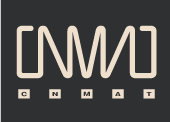Anthony Paul De Ritis: Electroacoustic Music, in memorium: David Wessel
Albany Records has released a new CD by composer Anthony Paul De Ritis: Electroacoustic Music, In memorium: David Wessel
Composer Anthony Paul De Ritis began studying with David Wessel at the Center for New Music and Audio Technologies after returning from his studies at the American Conservatory in Fontainebleau. Wessel exerted a tremendous influence on De Ritis, both as a teacher and as a person. This recording of De Ritis' music is a tribute to David Wessel. The pieces on this recording span more than 25 years. Listening to the music is captivating. Written for Western instruments or Asian instruments, the music sounds like a successful syntheses of East and West, where real-time processing devices transform the sound of acoustic instruments into a rainbow of sound colors. Having received a thorough Western education and then traveled the world, Anthony Paul De Ritis has come up with a music that is far more than the sum of its parts -- music that is imaginative and a wonderful balance of tone colors.
In Memoriam: David Wessel
By Anthony Paul De Ritis
In the summer of 1991 I made my first trip to Europe. I was accepted at the American Conservatory in Fontainebleau, France, where Philippe Manoury and Tristan Murail were offering master classes in music composition. It was in a conversation between Tristan Murail and fellow participant and composer Ronald Bruce Smith that I first learned of David Wessel—Smith had copies of clarinet spectra, which surprised Murail, who wondered aloud how Smith had come across this numeric data—it had been generated by David Wessel. Later that summer, Smith suggested I apply to the University of California, Berkeley, where a few years earlier Wessel had established the Center for New Music and Audio Technologies (CNMAT). I began studying at UC Berkeley in 1992, and did my best to embed myself in the musical culture of the Department, first as T.A. for the University Orchestra (under maestro Jung-Ho Pak) and then as David Wessel’s assistant in his famed course “Music 158: Musical Applications of Computers and Related Technologies.” I had taken the course during my first semester, when Georg Hajdu (now head of Multimedia Composition at the Hochschule für Musik und Theater Hamburg) was the assistant. At that time I had programmed my own MIDI sequencer in Max, which made use of Wessel’s MTP—multi-timbral player (I was enamored by the powerfully beautiful yet simple logic of Wessel’s “on-on time” and other objects embedded within his score-player). Wessel gave me an A+ for my class grade, which was a big deal to me, as I had pretty much bombed the rest of my first semester at Berkeley, having earned a B+ in composition seminar with Olly Wilson, and a B in the Taruskin-Thow seminar, complete with the written evaluation “wildly enthusiastic yet woefully immature.” (If it wasn’t for Wessel, UC Berkeley might have dumped me by the end of my first year. Those B’s in grad school might as well have been F’s, especially when it came to retaining my graduate funding!) Wessel asked me to be his teaching assistant the following year. Fast forward to the day of my Ph.D. oral exam: Wessel had to be out of town and asked me to cover the class. However, when he learned that I was taking my orals the same day, he postponed the class. I’ll never forget this empathetic act. He put himself in my shoes, and made a decision based on his concern for my best interest. This tells a lot about David Wessel. It is also very clear to me that it was through David Wessel’s recommendation and advocacy that I was awarded a teaching position at Northeastern University in 1998, in music technology and multimedia studies. The publication of this CD coincides with my twentieth year at Northeastern. David Wessel’s influence in the world of computer music is widely known (though, I believe, still underestimated), and I am aware that there are individuals more accomplished and qualified than I to honor David’s Wessel life and influence. However, after his sudden and shocking passing in October 2014, I was unable to attend the scheduled events celebrating his life, and I had been wondering how else I might honor him. Once, upon a return visit to Berkeley, I met Wessel at the Triple Rock Brewery on Shattuck Avenue, and I suggested that his friends and former students should organize a Festschrift in his honor. He modestly laughed at the idea, and almost seemed embarrassed by the suggestion, though he did joke that he would enjoy asking Pierre Boulez to write the introduction. (This photo) is from that discussion at the Triple Rock. Thank you, David Wessel, for being a great teacher, inspiration, and friend. Thank you for your example of how to celebrate and live life to its fullest. Thank you for your passion for music and science and your commitment to teaching. And thank you for making a difference in my life and in the lives of so many others. You are remembered, and you will always be remembered.
Special thanks to Robin Wessel, David Wessel’s son, for allowing me to honor his father in this way.
—Anthony Paul De Ritis, November 12, 2017
